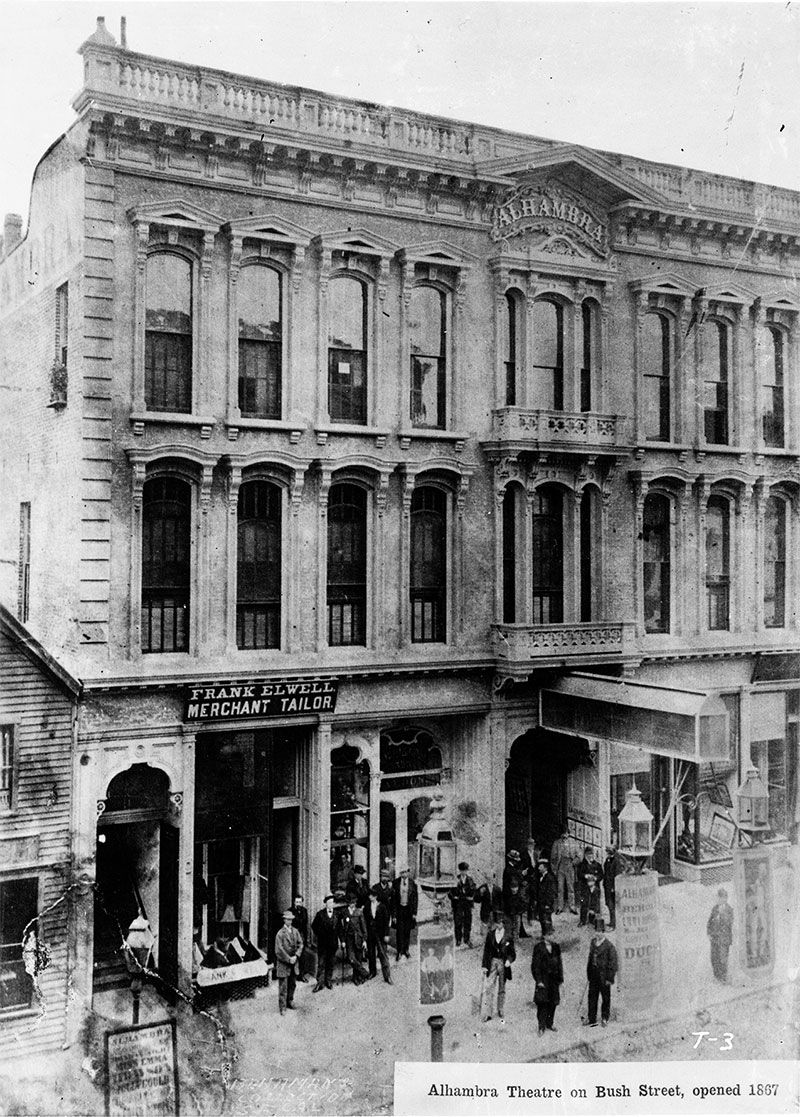Woody Grab Bag #008
A preview of Woody's San Francisco Story Annual 2022 featuring an excerpt about the larger-than-life diva, Lilian Slinkey, AKA "Madame Durini."

Miss Slinkey Will Sing
(This is an excerpt from one of the articles in San Francisco Story Annual 2022. The full publication will be released on my birthday, November 29, and made available only to Friends of Woody.)
Lilian Slinkey waited behind the curtains. On the other side she could hear people talking, coughing, and laughing, as all audiences do just before the house lights lower. San Francisco’s Bush Street Theatre between Kearny and Montgomery Streets was packed on the evening of May 16, 1894.


